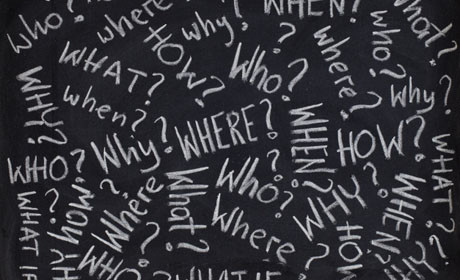
Breaking into the media industry is not an easy task, so what are editors looking for in a young journalist, and what can you do when you feel stuck?
Financial Times editor Lionel Barber said staying curious is an important part of being successful in the newsroom.
"Don't be cynical. Good journalists are curious, they're not cynical," he said, speaking at a Media Society event last week.
Asking the second question and not being satisfied with the official statement or the company line is a big part of that, he added.
Barber also said young journalists should learn how to read intelligently, and how to spot stories in newspapers that could be further explored and investigated to "go behind and find the real story".
"That's one of the hardest things to do, and also it's hard if you've been around for a while."
Curiosity and the ability to see through an official statement can ensure young journalists don't walk into the news conference in the morning thinking "it's a bit quiet today", he said.
Barber explained what he looks for when interviewing journalists for positions at the FT, including those who made it through to the last stages of the media organisation's graduate training scheme.
Being curious and wanting to tell stories are just some of the qualities at the top of his list.
Young journalists at the FT have to "understand we're talking about teams, collaborations", said Barber.
He added that a spotless academic record or brilliant CV would not make or break an application.
"We understand with younger journalists, they're not a finished article.
"We shouldn't expect that, we can help [you] grow."
He explained finding the job difficult was something journalists can expect at the beginning of their career.
Not being able to get the first paragraph right, or having stories thrown back by a sub-editor late at night does happen, particularly when most other journalists in the newsroom are more experienced and "10 times better".
He said young journalists should understand that a lot of effort goes into writing and it's "not something which just comes".
"Most of us actually have to work at it. If you're smart, when you're writing 2000 words you're not going to hand it in straight away.
"You're probably going to edit it yourself three times so that actually you don't have silly mistakes in it before the editor sees it."
He suggested thinking about the mistakes being made, and finding people who can give advice.
"Yeah it can be lonely out there, but you'll get through," he said.
Free daily newsletter
If you like our news and feature articles, you can sign up to receive our free daily (Mon-Fri) email newsletter (mobile friendly).
Related articles
- What the Financial Times learned from experimenting with AI
- Keeping the conversation clean: How AI helps the Financial Times moderate comments
- Five key takeaways from the UK select committee on the future of news
- Intensive AI training by FT Strategies and GNI open for applications
- From Reuters to The New York Times, Big Oil pays 'most trusted media brands' to push greenwashing











